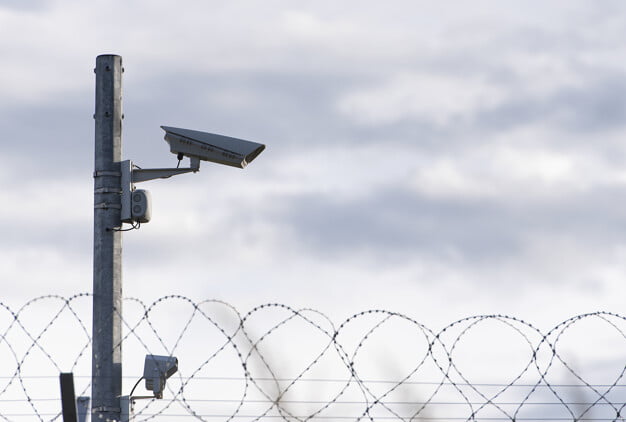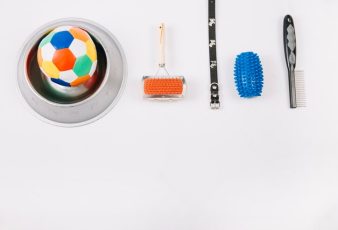Horses have breeds, sizes, and temperaments. There is no single type of fence that is the best for every horse. You need to understand different types of fences for your horse arena fencing. It is important to keep your horses safe in the feeding area, training area, and any other part of your farm.
Here are different types of fences for your horses:
1. Electronic fences:
An electronic fence causes a mild shock when it leans over or runs into the fence. The shock trains the horse to keep off the fence. These fences are constructed using coated wire, tapes, or ropes, and you can adjust them to different electrical currents. They are among the most expensive types of horse fence. They are less visible to the fence and can cause harm to your horses.
Wide tapes and straps create a more physical barrier to the horses. You can reduce the damages of an existing electric fence by installing an insulated outrigger wire as it reduces the pressure of the electric fence. You can install the outrigger wire in posts of your fences such as wood posts, metal, or plastic. It would be better to control the fence’s vegetation to keep the electric fence effective. You need to be regularly checking if the electric current is flowing in the electric fence. The disadvantage of this kind of fence is that the wires can get damaged over time.
2. Wood fences:
Wood is the most popular traditional material for fencing used for a long time. You can use posts and rails for the wood fence. If you maintain your wood fence properly, it can last for a long period. Use planks from softwood like cypress, cedar, and oak or a hardwood tree. The type of wood to use on your horse fence will depend on your location. You need to treat the pine boards with chemicals when using them to make your wood fence, as when the chemicals fade horses begin to snack on the pine boards’ tasty aroma. You can use cheap woods to make your wood fence.
You need to paint your wood fence with preservatives and paint to prevent the ants from eating your wood. Also, you need to add anti-crib acidic substances to the paint to prevent the horses from eating the wood. Remember to be careful when choosing chemicals to treat the woods. Some might be harmful if they are applied where the horses touch them like in the grazing area or drinking water location. During horse competitions, some of the chemicals you use to treat the woods can get you in problems with the sport as the horses can absorb the chemicals. The advantage of using a wood fence is it is strong and can last long.
3. PVC fences:
Most equestrians love using plastic fences as they appear like wood fences and do not have fewer maintenance expenses. Plastics are weather-resistant and stabilize sunlight. Polyvinyl chloride is the common material used for plastic fences. The plastic material is stiff when the weather is cold but softens when it’s hot, you should formulate the plastic fence to be resistant to weather changes. Polyvinyl chloride fence lasts for a long time, but you need to paint like the wood fence. You can choose different colors to match your farm environment. The advantage of using PVC fences is that it has fewer maintenance costs, and it is visible so it cannot harm your horses. However, it costs more than the wood fence.
4. Wire mesh fences
You can use v-mesh and no-climb mesh to make a fence for your horses. Wire mesh fences are strong, and their texture cannot harm the horses. The v-mesh cost is more than the no-climb mesh. When you install the wire mesh fences correctly, they can serve you for a long time. You can use the wire mesh fence to provide security to other farm properties. They keep off unwanted visitors, dogs, and predators that come to your home if you have no fence. It would help to use a top barrier to prevent the wire mesh from bending when horses lean on them. You need to take care of the wire mesh fences well. It would be better to tighten them often to prevent gaps. You also need to regularly check the fence’s perimeter to confirm trees are not growing in the fence and wrapping it. The non-climb fence is best for flat areas; it can be difficult to install uneven land.
5. High tensile wire fence:
A high tensile wire is strained tightly between posts. They are different types of high tensile wires. The smooth wire has a zinc coating to protect the wire from rust. The more zinc is put on the wire, the more the wire will stay without rusting. The thicker wire makes a durable fence. You can paint the high tensile wire fence in white color to make it more visible to the horses and less possible to harm them. You can also add colored polymers to increase the fence’s visibility.
You can make your wire fence with four to seven strands of polymer wire. It is not easy to notice the wires when you are far.
You can make your fence more effective by adding electrified wires to make the horses stay away from the fence. The high tensile wire fence is cheaper compared to posts and rail fences. It is safe and does not rust.
Bottom line:
There are different types of horse fences. You can choose any type when you want to install a fence for your horses. You need to choose a visible fence that provides safety to your horses. However, climate and type of land shape might affect the type of fence you choose for your horses. You can ask for your neighbors’ ideas to find out what kind of fence is good for your horses. Look for professional installers if you cannot install the fence by yourself.
Read Also:
































